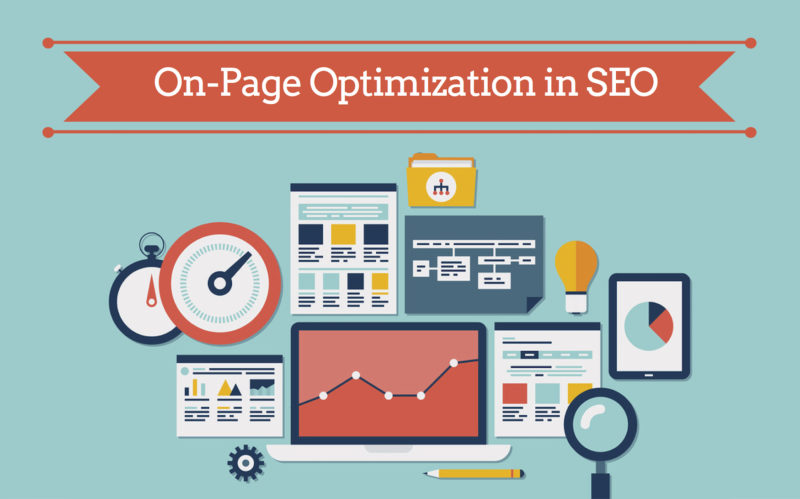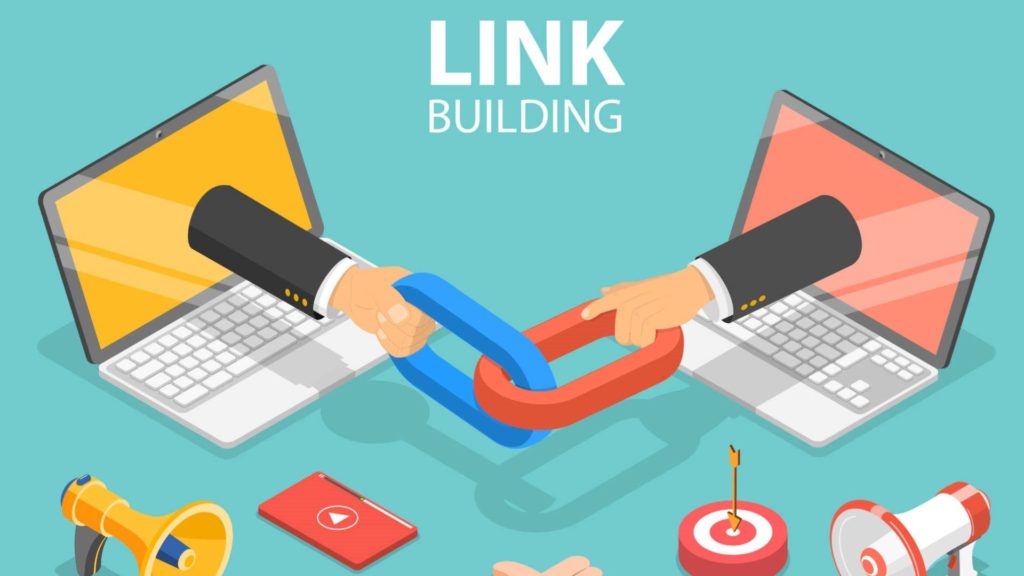
Starting a new business can be a challenging and exciting venture, but it’s important to make sure your online presence is optimized for search engines. With the right SEO strategies in place, using an SEO checklist you can increase your visibility, attract more traffic to your website, and grow your business. In this blog, we’ll be sharing 5 essential SEO tips that every start-up business should know.
5 Essential SEO Tips
Whether you’re a complete beginner or have some experience with SEO, these tips will help you take your online presence to the next level.
1.Keyword Research

Importance of keywords in SEO
Keywords play a crucial role in improving your SEO and optimizing your website for search engines. They help search engines understand the topic and content of your website, making it easier for them to match your website with relevant search queries from users. By targeting the right keywords, you can ensure that your website appears at the top of search engine results pages (SERPs) for queries that are relevant to your business, products, or services.
How to conduct keyword research
Conducting keyword research is the first step in optimizing your website for search engines. There are various tools and techniques that you can use to research keywords, including:
- Google Keyword Planner
- Google Trends
- Keyword research tools such as SEMrush, Ahrefs, Moz, etc.
- Competitor analysis
When conducting keyword research, it’s important to look for keywords that are relevant to your business, have high search volume, and have low competition. You should also consider the intent behind each keyword, such as whether users are looking to buy, learn, or find information.
Best practices for selecting keywords
Here are some best practices to keep in mind when selecting keywords:
- Relevance: Make sure that the keywords you select are relevant to your business, products, or services.
- Search volume: Look for keywords that have a high search volume, as these are the keywords that are most likely to drive traffic to your website.
- Competition: Avoid highly competitive keywords, as they can be difficult to rank for.
- Intent: Consider the intent behind each keyword, such as whether users are looking to buy, learn, or find information.
- Long-tail keywords: Long-tail keywords, or phrases that are more specific and longer, can be easier to rank for and can also drive more targeted traffic to your website.
2.On-page Optimization

Importance of website structure and content
“The structure and content of your website play a critical role in determining its search engine ranking. A well-structured website with high-quality, relevant content is more likely to rank well in search engine results and attract more organic traffic. On the other hand, a poorly structured website with low-quality, irrelevant content will struggle to rank and attract traffic.” Says Samantha Dunton, Director of Oakhurt Blinds
How to optimize website content for search engines
Here are some steps you can take to optimize your website content for search engines:
- Use keywords in the title tag and meta description
- Include keywords in the headings, subheadings, and body text
- Use internal linking to connect related pages and posts
- Use alt text to describe images and other media
- Write high-quality, informative, and engaging content that provides value to your target audience
Best practices for website structure and design
Here are some best practices to keep in mind when optimizing your website structure and design:
- Use a clear and logical site architecture
- Use descriptive and concise URL structures
- Use header tags (H1, H2, H3, etc.) to structure your content
- Make sure your website is mobile-friendly and responsive
- Use high-quality images and videos to engage your audience
- Improve page load speed by optimizing images, reducing the number of plugins, and using a fast hosting service.
3.Social Media Optimization

Importance of social media in SEO
“Social media plays a significant role in search engine optimization (SEO) as it helps in improving brand visibility and reach. Social media presence can also impact search engine rankings by generating backlinks to a website and increasing brand mentions, which in turn can improve a website’s authority and credibility. Most people use scheduling tools to increase their online presence. You can check the best buffer alternatives to view the trendiest scheduling tool in the market. Social media platforms like Facebook, Twitter, and LinkedIn are also search engines in their own right, and having a strong social media presence can increase the chances of appearing in the search results of these platforms.” Says Ahad Ali, CPA at Ahad&Co
How to optimize your social media profiles for search engines
- Complete profile information: Fill out all the required fields with accurate and concise information about your business, including keywords relevant to your industry.
- Consistent branding: Use the same profile picture, header image, and logo across all social media profiles.
- Relevant keywords in profile and post descriptions: Use relevant keywords in your profile and post descriptions to improve visibility in search results.
- Engaging and shareable content: Publish content that is valuable and engaging to encourage users to share, like, and comment on your posts, which can increase your reach and backlinks.
- Active and consistent posting: Regularly post on your social media profiles to keep your audience engaged and improve visibility in search results. To cut down your efforts you can always use various social media automation tools that are available in the market.
Best practices for social media optimization
- Target audience research: Research your target audience to understand their interests, pain points, and preferences, which can inform your content creation strategy.
- Post scheduling: Plan and schedule posts in advance to ensure consistent and regular posting. You can use a social media scheduler for this purpose, that allows you to schedule Facebook posts, Instagram posts, LinkedIn posts, Tweets, etc.
- User-generated content: Encourage users to create content for your social media profiles, such as reviews and testimonials, which can increase brand credibility and visibility.
- Social listening: Monitor mentions of your brand, keywords, and competitors to stay informed and respond to user comments and queries in real time.
- Measurement and analysis: Use analytics tools to measure the performance of your social media optimization efforts and inform future strategies.
4.Link Building

Definition of backlinks and their importance in SEO
“Backlinks, also known as incoming links, inbound links, or incoming links, are links from other websites that point to your website. Backlinks are considered a crucial factor in determining the ranking of your website in search engine results pages (SERPs). The more high-quality backlinks you have pointing to your website, the more authoritative and trustworthy your website is considered to be by search engines, which can result in higher rankings and more organic traffic.” Says Nick Edwards, Managing Director at Snowfinders.
How to acquire high-quality backlinks
Here are some ways to acquire high-quality backlinks for your website:
- Create high-quality, informative, and engaging content that people will want to link to
- Reach out to other websites in your niche and ask for links
- Participate in online communities and forums related to your niche
- Collaborate with other websites and bloggers to create guest posts or co-create content
- Build relationships with influencers and other websites in your niche
Best practices for link building
Here are some best practices to keep in mind when building backlinks:
- Focus on quality over quantity. It’s better to have a few high-quality backlinks than many low-quality backlinks.
- Avoid buying backlinks or participating in link schemes, as these practices can result in penalties from search engines.
- Make sure your backlinks are from reputable and relevant sources.
- Use descriptive and concise anchor text for your backlinks.
- Diversify your link profile by getting links from different types of websites, such as b2b blogs, forums, directories, and social media.
5.Content Marketing

Definition of content marketing and its role in SEO
Content marketing is a strategy of creating and distributing valuable, relevant, and consistent content to attract and retain a clearly defined audience with the goal of driving profitable customer action. In the context of SEO, content marketing can play a crucial role in improving your website’s ranking and visibility in search engine results pages (SERPs). By providing valuable and relevant information to your target audience, you can attract more organic traffic and improve your website’s credibility and authority, which can ultimately result in higher rankings and more conversions.
How to create and distribute high-quality content
Here are some steps you can take to create and distribute high-quality content:
- Conduct thorough keyword research to determine the topics and keywords your target audience is searching for
- Create high-quality, informative, and engaging content that provides value to your target audience
- Optimize your content for search engines by including keywords, using header tags, and including internal links
- Distribute your content through your website, blog, social media, email, and other channels
- Promote your content through influencer outreach, paid advertising, and other tactics
Best practices for content marketing
Here are some best practices to keep in mind when conducting content marketing:
- Focus on providing value and solving your target audience’s problems or needs
- Make sure your content is high-quality, engaging, and informative
- Use visuals and multimedia to enhance your content
- Regularly publish new content to keep your audience engaged and attract new visitors
- Measure and analyze your content marketing efforts to determine what’s working and what’s not, and make adjustments accordingly.
To Sum Up,
In conclusion, SEO is crucial for the success of any start-up business and it is never too early to start implementing optimization strategies. By conducting keyword research, building quality links, optimizing your website’s on-page elements, creating valuable content, and optimizing your social media profiles, you can improve your website’s visibility in search results and reach your target audience.
These tips are just the starting point, and there is always room for growth and improvement. Stay up-to-date with industry trends, measure your efforts regularly, and adjust your strategy as needed to stay ahead of the competition. Remember, SEO is an ongoing process, and with dedication and hard work, your start-up can become a leader in its industry!
Read More: 6 Easy Ways to Promote Your Business





